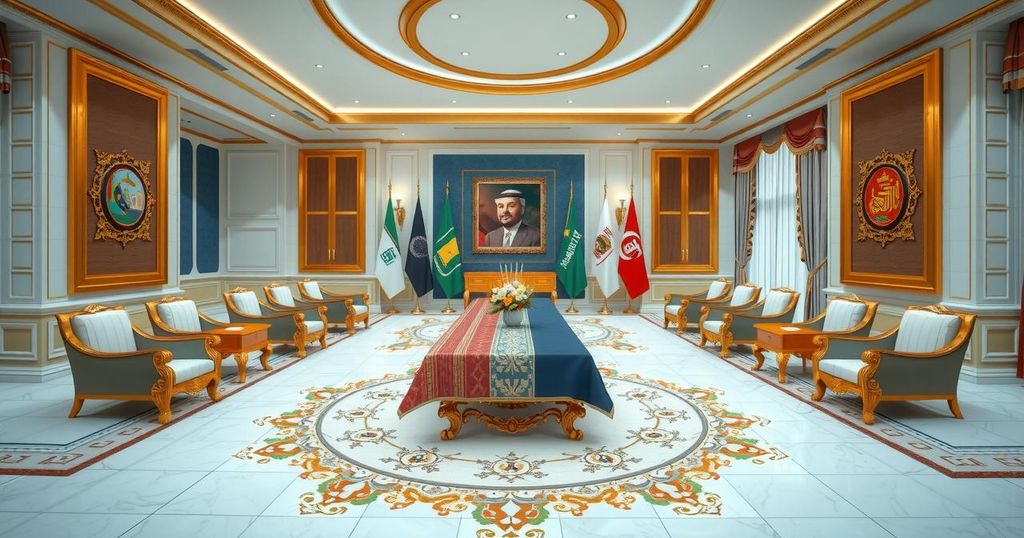Russia Critiques U.S. Strategy in Ukraine and Promotes Saudi Diplomacy

Dmitry Polyanskiy, Russia’s deputy UN representative, critiques the Biden administration for exacerbating the Ukraine conflict. He praises the more realistic approach of the Trump administration and acknowledges Saudi Arabia’s emerging diplomatic role. Polyanskiy addresses crises in Gaza and Sudan, emphasizing the need for unified Arab action and a peaceful transition in Syria, promoting cooperation and historical ties.
In an interview with Arab News’ program “Frankly Speaking,” Dmitry Polyanskiy, the Russian Federation’s first deputy permanent representative to the UN, criticized the Biden administration’s approach to the Ukraine conflict, stating it has exacerbated rather than resolved tensions. He expressed that the previous U.S. administration played a significant role in creating a hostile environment towards Russia, which escalated into the current war, particularly following the start of Moscow’s military operations in February 2022.
Polyanskiy claimed that Washington’s actions have fueled the conflict and emphasized that the Biden administration aims to inflict strategic defeat on Russia, with no change in course evident. In contrast, he lauded the approach of Donald Trump’s administration, suggesting it offered a more realistic perspective and indicated that recent proposals aimed at stopping hostilities would benefit Ukraine.
During the recent talks held in Riyadh, discussions focused on a draft agreement involving the ceasefire over the Black Sea and the potential easing of sanctions on Russia, marking Saudi Arabia’s significant role in global diplomacy. Polyanskiy acknowledged Saudi Arabia’s positive engagement, arguing that it could emerge as a key diplomatic hub, especially for negotiations concerning the Ukraine conflict.
Addressing the crisis in Gaza, Sudan, and Syria, Polyanskiy reiterated Russia’s position in support of Palestinian rights and the necessity of a two-state solution. He noted the limitations of Russia’s influence over Israel compared to the U.S. and highlighted the importance of Arab countries’ unified action to secure attention for the Palestinian cause.
Polyanskiy remarked on the evolving situation in Sudan, asserting Russia’s support for the Sudanese authorities amidst ongoing conflict. He defended Moscow’s veto of a UN resolution calling for a ceasefire, explaining that the resolution’s framing equated both the government and the RSF, which he viewed as problematic. Furthermore, he dismissed criticisms concerning famine in Sudan as misinterpretations of the situation.
Finally, discussing the Syrian conflict, Polyanskiy emphasized Russia’s commitment to a peaceful transition and collaboration with Syrian authorities. He maintained that Russia values its longstanding relationships and aims to assist Syria in achieving sustainable development during this transitional period. The emphasis was placed on fostering friendships based on historical ties rather than being swayed by recent events.
The article underscores the complex interplay of international relations and diplomatic efforts surrounding the Ukraine conflict, with Dmitry Polyanskiy highlighting Russia’s discontent with the Biden administration’s approach. Instead, he fosters optimism for Saudi Arabia’s role as a diplomatic leader, discusses regional crises in Gaza and Sudan, and reiterates Russia’s commitment to a peaceful resolution in Syria. Overall, Polyanskiy advocates for cooperation and realistic engagements by major powers, stressing the importance of addressing longstanding global issues judiciously.
Original Source: www.arabnews.jp






